One group aims to boost Asian American history in Delaware schools. Where does it start?
She just wanted to see their culture in the classroom.
Expecting her third baby upon landing in Delaware, Amna Latif was ready to raise her children in the First State. She followed her husband to the University of Delaware while finishing her own doctorate in education. They had already followed one another before, all the way from Pakistan.
In no time, her oldest daughter bounced around daycares.
“I tried to find a place where my daughter could have a sense of belonging,” Latif remembered.
To end this journey, Latif would launch her own school. The now-director would take her degree and develop a curriculum dedicated to integrating different cultures and the study of Islam, all starting from inside her own home. Enrollment grew exponentially. Today, Tarbiyah School serves just under 200 students in Newark.
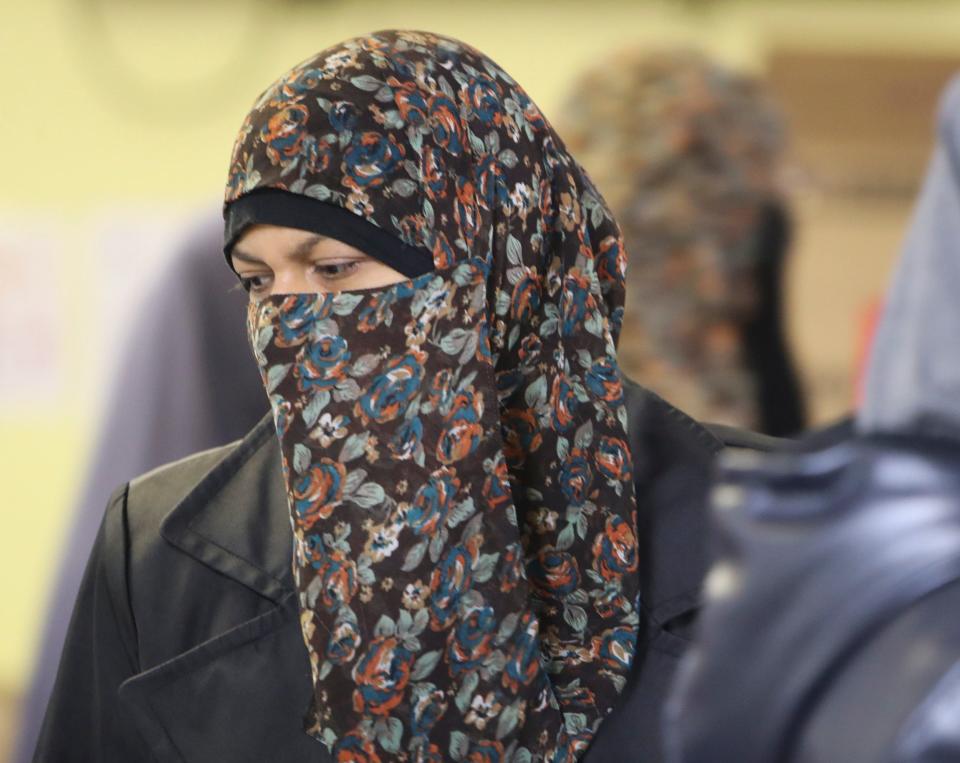
Latif knew she couldn’t be the only Asian Delawarean who hoped for this reflection, even on a small scale. Last month, she was reminded.
Make Us Visible Delaware just launched this fall, under the mission to push for more Asian American history to infuse with K-12 curricula in Delaware. The budding arm of a national organization hopes to engage with residents, schools and lawmakers throughout the state to see legislation crafted to the same end, followed by active implementation. These hopes mirror efforts in Connecticut, New Jersey, Florida and others.
The group brings together educators, parents, local school board members and a college student. And its primary goals are two-fold — to reduce anti-Asian violence and bullying, as well as celebrate and humanize the role of Asian Americans in U.S. history.
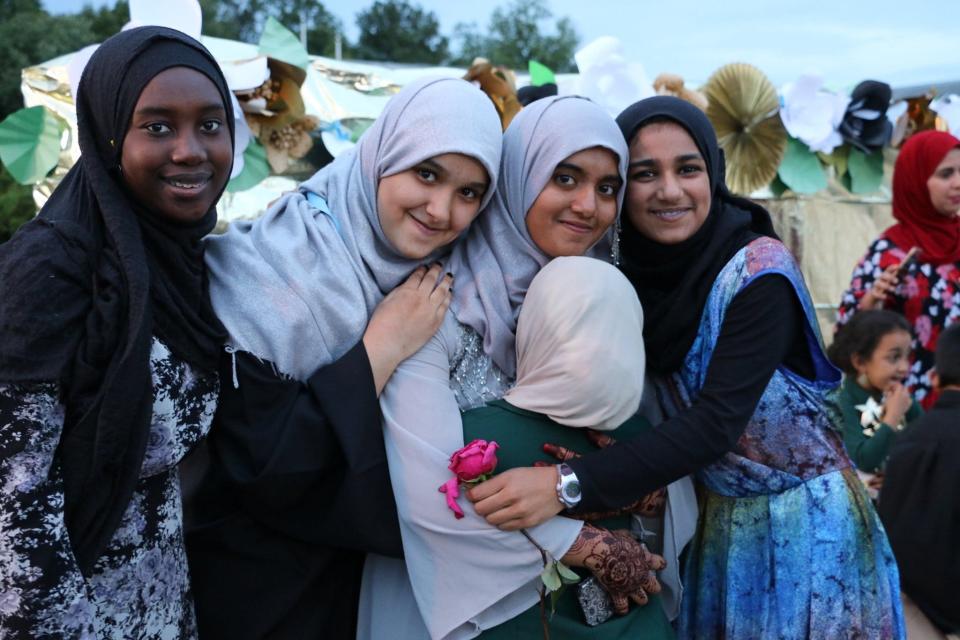
“The way they teach Asian American history right now is traumatizing,” said Devin Jiang, co-founder and junior at University of Delaware, sitting in a Newark coffee shop. His mind jumped to Japanese internment camps, Chinese railroad labor, historic immigration restrictions.
“And this makes people see Asian Americans as separate from American history. They're like victims, right? They're not part of the American story.”
His team wants to change that. And they’re confident a state of educators will jump on board.
Pop quiz: 20 facts to know for the next Asian American and Pacific Islander Heritage Month
‘Oh, them Americans'
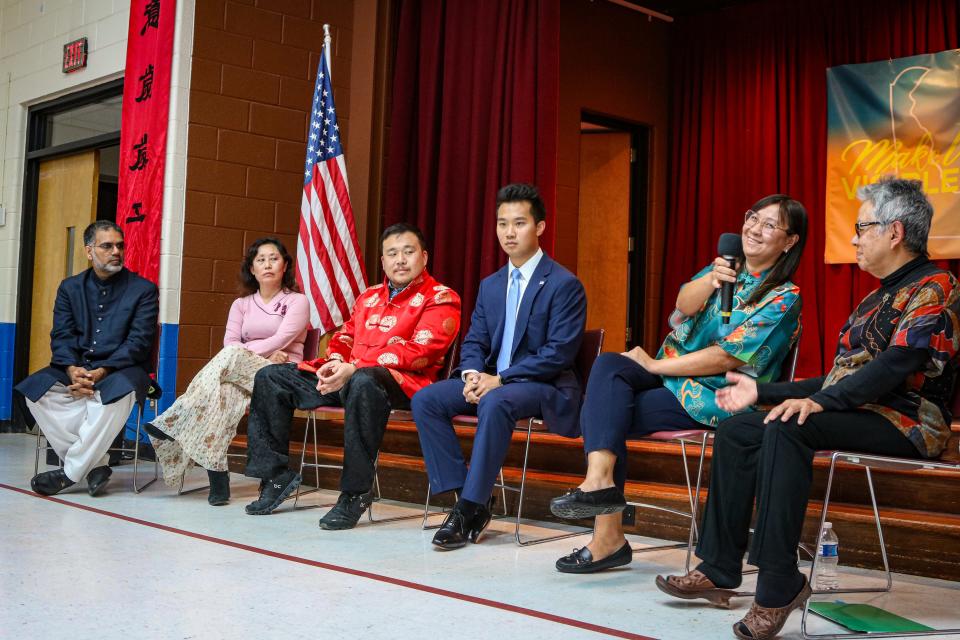
He was raised in Lewes.
Y.F. Lou has led most of his life in the U.S., as the now-Christina School Board member moved to the beachside city alongside his Chinese family when he was young. His childhood came with identity crises. He hardly saw himself in most other classmates and residents. He was often treated as foreign by default.
As he grew up, he caught himself believing it.
“As I had conversations with people, I always had a tendency to slip up by saying, ‘Oh, them Americans,’” he said, fellow members nodding beside him. “I'm like, wait a minute. Why am I saying them Americans? I am American. Why do I still not completely feel that I am part of this country?”
Now a father himself, Lou finds himself introspective. More conversations are needed, he decided, on the accomplishments of Asian people right here at home, to highlight their roles in American history that often go untold.
There are more than 22 million Asian Americans — about 6% of the national population — marking the fastest growing racial or ethnic group among eligible voters, according to Pew Research Center, with nearly 50 ethnic groups and some 100 languages represented.
Delaware’s New Castle County is slightly above overall statistics, at 6.3%, having seen a 44% increase in Asian population from 2010 to 2021, according to Census data. In the same data, Christina school district residents reflect roughly 7%.
“We need to do a better job as parents, we need to do a better job as community leaders,” Lou said. “Make us visible is not a platform to air grievances of racism, per se, but it is somewhere we're going to start the conversation, saying: ‘Hey, we are Americans. We help build this country.’”
He believes the classroom is the right place to start.
University of Delaware: Jewish students host hundreds for Shabbat at UD, as many communities watch tragedy unfold
A long road ahead for Asian American studies in Delaware
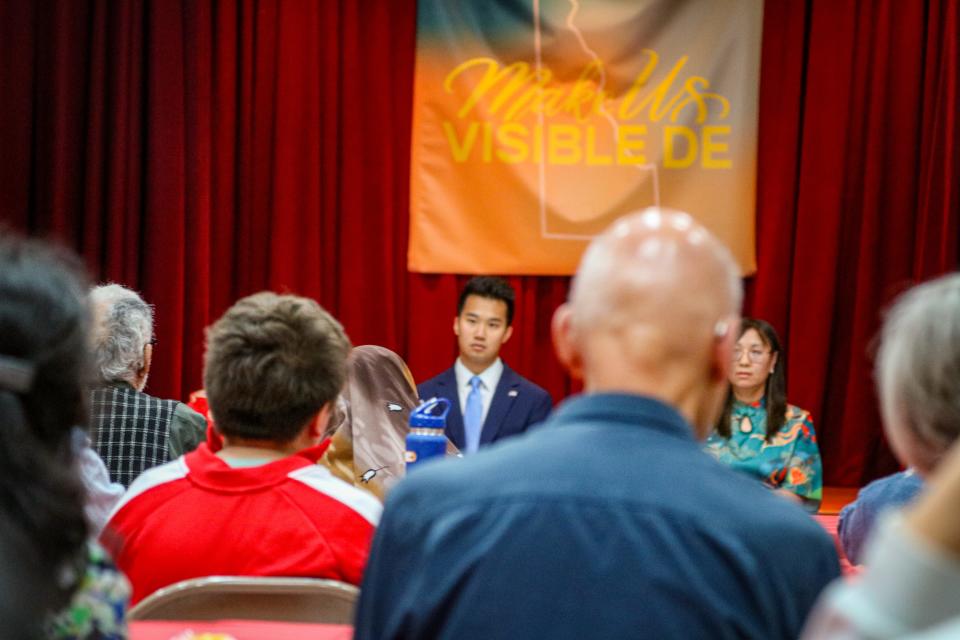
George ‘Yod’ Dupont was a Thai immigrant who fought in the American Civil War for the North and participated in key battles like Gettysburg and Chancellorsville.
Saint Malo Village was the first Asian American settlement, formed in the 1700s on the shores of Louisiana. Nicknamed the “Manilamen,” many of these Filipino settlers later joined the U.S. army to fight in the War of 1812, when they weren’t redefining the shrimping industry.
Echoing a history of exclusionary legislation nationally and in certain states, Washington had its own “alien land laws” blocking Asian American immigrants from buying or renting land in the state well into the 1930s. That is, until 1939, when Filipino immigrant Pio DeCano successfully fought the law all the way to the Supreme Court and saw it struck down.
Most racist laws against Asians remained in force until the late 1940s, when civil-rights activism defeated similar restrictions on Black Americans. As Columbia University's Professor Mae M. Ngai noted in a 2021 Atlantic essay, racism is a notable part of the Asian American experience, past and present.
National: Violence, bigotry toward Palestinian Americans spiking across US
More: ACLU points to one Delaware charter school to spotlight lessons in inclusive culture
“This is American history. This is not somebody else's history. These are Americans who have made these contributions,” said Naveed Baqir, flipping through pages of a Make Us Visible coloring book with other brief historic profiles. “People who fought in the Revolutionary War, who fought for independence. Asian Americans. How many how many Americans know about them? How many Asian kids know about them?”
Baqir — a fellow Christina board member, member of Delaware's chapter and husband to educator Amna Latif — sees this effort as elevating American history, not adding or taking away.
His team has a long road ahead.
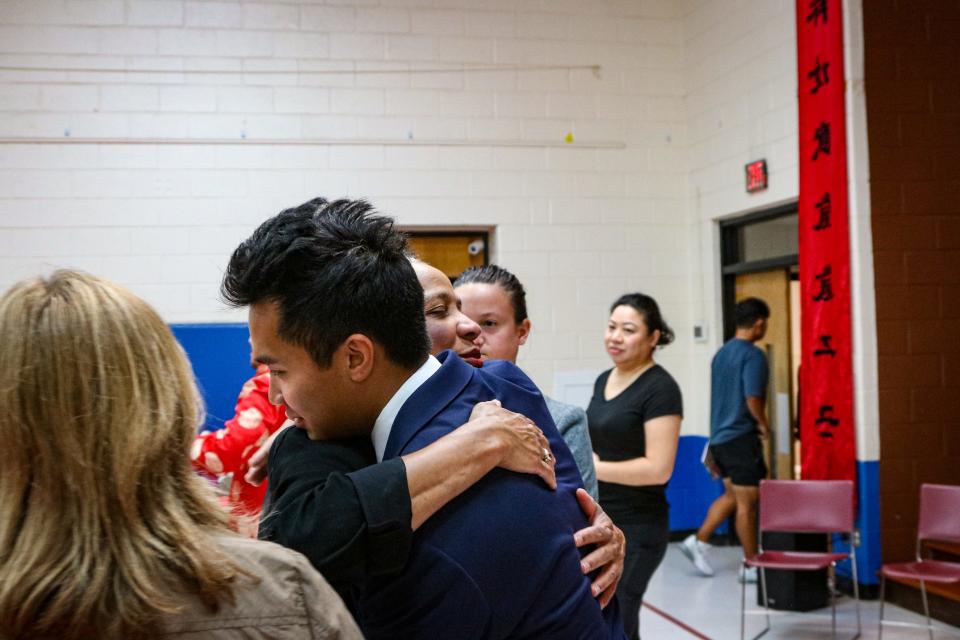
Some six laws requiring AAPI studies have passed across the country. Make Us Visible, alongside other affinity organizations, students, parents and educators, passed legislation in 2022 to make New Jersey the second state to require the inclusion of AAPI history in K-12 schools. Connecticut was the first, the same year, with a committee-led bill carrying 99 co-sponsors and legislative support from both the Progressive and Conservative Caucuses.
For the New England state, last fall marked the start of implementation. Organizers say much work remains.
“We knew all along that it wasn't just going to be about people signing off on a piece of paper,” said Jenny “JHD” Heikkila Díaz, co-chair on Asian Pacific American Coalition of Connecticut, among her many activist roles in the state.
With nearly 170 school districts and local control laws in Connecticut, advocates now continue to monitor implementation in schools. JHD has been working with educators across the state on strategies, materials and more as the “Activist in Residence” with UConn’s Asian & Asian American Studies Institute.
“We don't want this to be a course that only some students will take,” she said. “We want this to be integrated across every student in Connecticut who attend who attends public schools want to integrate across their K-12 experience.”
JHD credits much of the success so far to collaboration across groups — including constituents who gave input on possible elements to add to curricula.
Neighbors: Murphy signs bills making NJ second state to implement Asian American studies curriculum
Back in Delaware, a different historic legislation passed in 2021, requiring all Delaware public schools — both district and charter — to infuse instruction of Black History and experience into K-12 curricula. Delaware Department of Education reports show HB198's implementation has varied across districts so far, with some stakeholders questioning accountability measures.
Gathered around a coffee shop table in October, Make Us Visible Delaware shared similar aims, hoping to build from a community launch just days before. The group said it saw nearly a hundred people, including elected officials and residents, pack a room in the Chinese American Community Center, with discussion and momentum flowing.
Amna Latif was just one voice in the audience.
Within the goals of this Delaware group, she hears echoes of her own hopes for her kids, and for her school. They’re the same hopes that led her to building the growing Tarbiyah School community in New Castle County.

She has already agreed to use the Make Us Visible coloring book for younger learners, as a starting point, and hopes to see more spread.
“I feel that each one of us needs to feel a sense of belonging in this country,” said the director and principal. “Making that connection with history fulfills that for a lot of our students, for them to be able to see that they have ownership, to see how they are viewed in this country.
“That kind of connection is extremely important — and history provides that for us."
Got a story? Kelly Powers covers race, culture and equity for Delaware Online and USA TODAY Network Northeast, with a focus on education. Contact her at kepowers@gannett.com or (231) 622-2191, and follow her on Twitter @kpowers01.
This article originally appeared on Delaware News Journal: Group aims to boost Asian American history in Delaware K-12 schools

